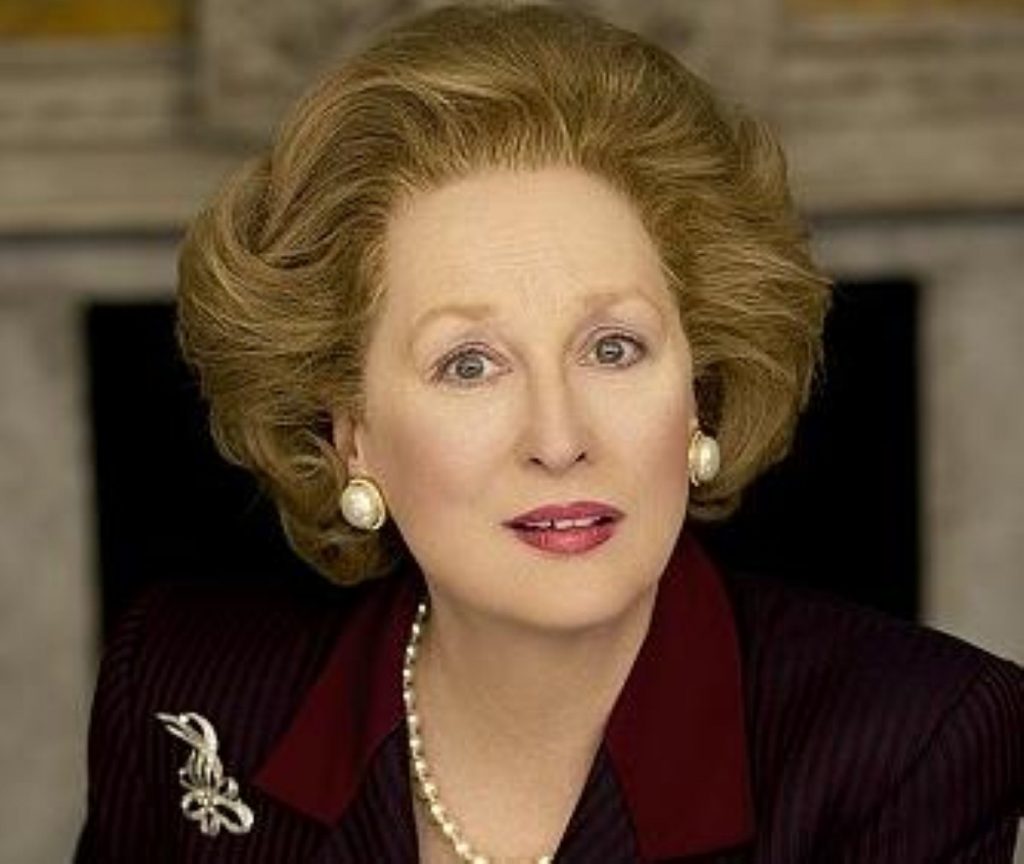The perils of portraying political figures
By Dr Matthew Ashton
The general consensus across the political spectrum seems to be that whatever you think of the film, Meryl Streep has done a brilliant job of capturing Margaret Thatcher on screen in The Iron Lady. Even those who hated her policies seem united in praising Streep's performance, and there is already talk of an Oscar nomination.
If I was being extremely cynical I might argue that this is one of the main reasons why actors are so keen to play real life political figures. If they do a half-decent job they're almost guaranteed at least a nomination come the awards season.
Some sections of the British press have been mildly offended by having an American portray a British prime minister, but to be fair the reverse has been going on for years. Anthony Hopkins has played both Richard Nixon and John Quincy Adams on the big screen, while Michael Gambon made a spookily realistic Lyndon Baines Johnson in The Path to War.


Portraying politicians in dramatisations of their lives though, is always fraught with difficulties. Partly this is because their voices and mannerisms as so well-known. Any actor attempting to simply copy them runs the risk of falling into the trap of impersonation.
You also have the problem that other actors might have attempted to do the same thing before which can lead to unflattering comparisons. In the case of Thatcher, she's been portrayed dozens of times with everyone from Patricia Hodge to Jennifer Saunders having a go. For my money, the two actresses that have come the closest so far to capturing her essence on screen are Lindsay Duncan in the recent TV drama about her fall from power and Andrea Riseborough who played the young Thatcher in The Long Walk to Finchley.
An even trickier issue is how you represent their politics. Thatcher was always going to be difficult because she is still such a divisive figure, even two decades after leaving office. Any attempt to ignore the politics and treat it purely as a character study would have been a mistake as her ideology was so essential to who she was. However it does then raise questions from both left and right as to which side the film has taken.
This is a curse that has afflicted most screen biographies at one point or another. The TV series The Reagans staring James Brolin came under a huge amount of criticism for what many considered an unappealing portrait of the former president. (In a strange coincidence, James' son Josh would later play George W Bush in the movie W.)
On a more serious note, these sorts of films can be crucial to a politician's legacy. For instance I know dozens of people whose perception of Nixon has been heavily influenced by repeated viewings of Oliver Stone's strangely sympathetic biopic. In a similar fashion I recently showed a large group of journalism students the film Frost/Nixon and they all admitted to having formed a favourable impression of Nixon after watching it.
As a result these films can be more powerful than any number of biographies or academic books in shaping how we view politicians and their lives. I suspect that many people's simplistic impression of Thatcher as a bullying ogre comes not from real-life, but from watching too many episodes of Spitting Image. Equally Tony Blair had been parodied so many times now, in so many mediums, that impressions of his famous mannerisms and speech patterns are almost as commonplace as Frank Spencer was in the 1970s. Consequently politicians now take an active interest in films that might impact their reputations.
It also leaves them the dilemma of how to respond to anything that doesn't show them in a flattering light. Most choose to keep a dignified silence based on the logic that anything they say will simply give the production more publicity. Of course this didn't stop Eisenhower publically denouncing The Battle of the Bulge, despite the fact he wasn't even it in, for its many inaccuracies. Former Italian prime minister Giulio Andreotti angrily attacked the brilliant political satire Il Divo because it portrayed him as a calculating monster with more than a passing resemblance to Nosferatu. Sometimes if a film is too close to the bone, and the politician still in office, than a handy change of name is a useful cop-out. John Travolta's character in the 1998 political drama Primary Colors was called John Stanton, but I don’t think anyone doubted for a second that it was meant to be Bill Clinton.
All of this then begs the question of who will play David Cameron if they ever decide to film his life story? Michael Sheen? James McAvoy?
A couple of actors have had a go at portraying his fellow Conservative Boris Johnson. But they've all largely failed for the simple reason that no one is better at playing Boris Johnson then Boris Johnson.
As long as he's still out there every day doing his thing he'll have that particular market sewn up.
Dr Matthew Ashton is a politics lecturer at Nottingham Trent University. Visit his blog.
The opinions in politics.co.uk's Comment and Analysis section are those of the author and are no reflection of the views of the website or its owners.












